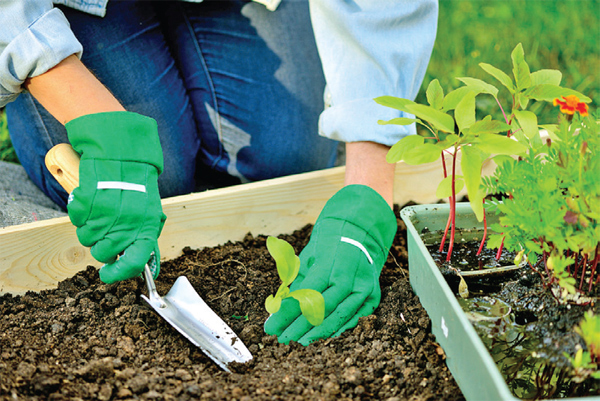How To Prevent Pests In An Organic Vegetable Garden What is the best pest control for vegetable gardens protection a garden organic pesticide What's natural How to prevent pests in an naturally Best Pest plants Natural recipe stop insects eating plant leaves Organic get rid of bugs soil before planting.
Maintaining an organic vegetable garden is both a rewarding and sustainable way to cultivate fresh, chemical-free produce. However, one of the greatest challenges organic gardeners face is the control and prevention of pests without the use of synthetic pesticides. Pests can damage crops, reduce yields, and, if left unchecked, devastate entire gardens. Fortunately, by implementing natural strategies that focus on prevention, gardeners can create a healthy ecosystem that minimizes pest infestations while supporting plant growth.
A fundamental principle of pest prevention in an organic garden is fostering biodiversity. A garden rich in diverse plant species attracts beneficial insects and natural predators that help control pest populations. Planting a variety of crops, incorporating flowers that attract pollinators, and maintaining a balance of native plants all contribute to a robust ecosystem. Companion planting, a time-tested method, involves strategically placing plants together to repel pests or enhance each other’s growth. For example, marigolds can deter nematodes and aphids, while basil planted alongside tomatoes can improve their flavor and repel mosquitoes and flies.
Healthy soil is another cornerstone of a pest-resistant garden. Soil rich in organic matter supports strong, vigorous plants that are naturally more resistant to pests and diseases. Compost, well-aged manure, and organic mulch improve soil structure, promote beneficial microbial activity, and enhance nutrient availability. Crop rotation also plays a vital role in preventing pest buildup in the soil. By changing the planting location of crops each season, gardeners can disrupt the life cycles of soil-borne pests and diseases, reducing their impact over time.
Introducing beneficial insects is a natural and effective way to manage pests in an organic garden. Ladybugs, lacewings, and praying mantises are well-known allies that prey on common garden pests such as aphids, caterpillars, and whiteflies. Encouraging these insects by planting nectar-rich flowers like yarrow, dill, and fennel can help maintain a balanced ecosystem where pest populations are kept under control. Additionally, birds and amphibians such as frogs and toads also play a crucial role in managing insect pests. Providing birdhouses, shallow water sources, and dense vegetation can attract these natural predators and create a more resilient garden environment.
Physical barriers are another effective method of preventing pests from reaching crops. Row covers, fine mesh netting, and floating row covers can protect plants from insects like cabbage moths and flea beetles while still allowing sunlight and rain to reach the plants. Mulching with straw or wood chips not only helps retain soil moisture and suppress weeds but also creates a barrier that deters crawling pests like slugs and snails. Handpicking larger pests such as caterpillars and beetles can also be an effective and immediate solution for small-scale gardens.
Using natural repellents and homemade pest control solutions can further aid in pest management. Garlic, neem oil, and chili pepper sprays have been widely used as organic deterrents against insects. Diatomaceous earth, a powder made from fossilized algae, can be sprinkled around plants to dehydrate and eliminate soft-bodied pests like aphids and slugs. Similarly, introducing biological controls such as Bacillus thuringiensis (Bt), a naturally occurring bacterium, can help combat caterpillar infestations without harming beneficial insects. How To Prevent Pests In An Organic Vegetable Garden
Watering practices also play a crucial role in pest prevention. Overwatering can create a humid environment that attracts fungal diseases and pests like slugs, while underwatering can weaken plants and make them more susceptible to insect damage. Watering in the early morning allows the foliage to dry throughout the day, reducing the risk of fungal infections and discouraging moisture-loving pests.
Regular monitoring and early detection are key components of organic pest prevention. Inspecting plants frequently for signs of pest activity, such as chewed leaves, discolored spots, or sticky residues, allows gardeners to take prompt action before infestations become severe. Removing affected leaves, pruning overcrowded plants, and disposing of diseased plant material can help contain pest outbreaks and prevent their spread.
Encouraging plant resilience through proper spacing, pruning, and fertilization also strengthens a garden’s ability to withstand pest pressures. Overcrowded plants compete for nutrients and light, creating stress that makes them more vulnerable to pests and diseases. Proper spacing ensures adequate air circulation, reducing humidity levels that favor fungal infections. Pruning dead or diseased branches not only improves airflow but also removes potential breeding grounds for pests.
Attracting pollinators and predatory insects through interplanting with flowering species enhances the garden’s natural defenses. Flowers such as calendula, sunflowers, and lavender provide nectar sources for bees, butterflies, and hoverflies, which contribute to pest control by feeding on small insects. By designing a garden that mimics nature’s diversity, gardeners can harness the power of ecological balance to keep pest populations in check.
Incorporating these organic pest prevention strategies requires patience and dedication, but the rewards are well worth the effort. A garden managed through natural, eco-friendly practices not only yields healthier produce but also supports local biodiversity and contributes to environmental sustainability. By fostering a thriving ecosystem, maintaining healthy soil, and employing preventive measures, gardeners can successfully cultivate an organic vegetable garden free from harmful chemical interventions while enjoying the benefits of a bountiful harvest. How To Prevent Pests In An Organic Vegetable Garden



















0 komentar:
Posting Komentar